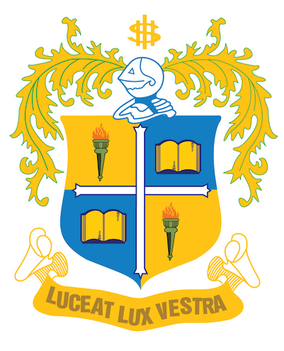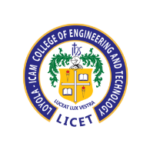Core Values & Partnership
Core Values
LICET aims at training young men and women of quality, capable of leading the society in all walks of life and to serve their fellow human beings in justice, truth, love and compassion.
The goal of Jesuit education aims to form men and women for/and with others. The intellectual information and technical training should form character to become leaders with social responsibility. In the context of today’s education, especially professional education, being increasingly commercialized, LICET is working at empowering the marginalized by giving access to professional education. LICET aims to offer excellent education at affordable cost.
The primary aim of the Jesuits is to provide higher education, especially professional education, in a Christian atmosphere to deserving students, especially those belonging to Catholic Christian Community. Although this college, as a minority institution, is primarily meant for Catholics, it does admit other students irrespective of caste, creed, language and nationality.
LICET aims at training young men and women of quality, capable of leading the society in all walks of life and to serve their fellow human beings in justice, truth, love and compassion. This training will bring in desired change in the lives of people, more particularly the poorer and marginalized sections of the society and Dalits. Further it will foster an atmosphere of intellectual vigour and moral rectitude. Through institution-industry collaboration, LICET will strive to help young men and women to find their fulfillment and achieve greatness as eminent men and women for others who would be the voice of the voiceless and the name of the nameless in society.
LICET is born out of global vision of Loyola College Society (LCS ) and ICAM-Group. The core philosophy of ICAM and LCS is to facilitate conducive atmosphere in which men and women form themselves into COMPETENT, CREATIVE, COMMITTED and COMPASSIONATE professionals. These four C’s form the commonness of our partnership. This is the unity we forge by coming together to offer a collective enterprise contributing to the formation of engineers who would promote growth in individuals and in society.
Loyola College (founded in 1925 in Chennai, India) and ICAM (Institut Catholique d’Arts et Métiers, founded in 1898 in Lille, France), both guided by the Jesuit methodology of education, have inked a joint venture of founding an engineering college which would be a unique model not only in forming engineers with social responsibility but also serving as a melting pot of Indian and French cultures preparing Indian students to serve in European industries and European students to work in Indian industries. Based on principles of integral pedagogy evolved out by Jesuits and the style of education, the whole study program leads not only to the acquisition of professional qualifications but also allows students to have comprehensive personal development: ability to work in a team, develop communication skills, appreciate cultures to be sensitive to ethics and social involvement.
LCS and ICAM would run LICET jointly at the levels of curriculum formulation especially in collaboration with industry, faculty and student exchange programmes, financial administration etc. In every way LICET is expected to be unique, academically as well as in personal character formation. In LICET we don’t merely inform but form the youth with vision for future. LICET forms not just skilled engineers but engineers, who could lead organisations effectively and efficiently.
Another unique feature of LICET is its working partnership with Loyola Institute of Business Administration (LIBA) within loyola campus. LIBA would give another advantage, namely combination of engineering degree with business diploma. LICET will form not just skilled engineers but engineers, who could lead organisations effectively and efficiently.

Partnership
Loyola College (founded in 1925 in Chennai, India) and ICAM (Institut Catholique d’Arts et Métiers, founded in 1898 in Lille, France), both guided by the Jesuit methodology of education, have inked a joint venture of founding an engineering college which would be a unique model not only in forming engineers with social responsibility but also serving as a melting pot of Indian and French cultures preparing Indian students to serve in European industries and European students to work in Indian industries. Based on principles of integral pedagogy evolved out by Jesuits and the style of education, the whole study program leads not only to the acquisition of professional qualifications but also allows students to have comprehensive personal development: ability to work in a team, develop communication skills, appreciate cultures to be sensitive to ethics and social involvement.
This collaboration became operative when a Memorandum of Understanding (MoU) was signed between the Loyola College Society (LCS) and the ICAM-Group in Lille, France in April 2009. The partnership between ICAM and Loyola is intended to form the youth in Tamil Nadu and in France to become global leaders who would play key roles in creating a new social order. Historically and strategically, we are in a position to help the poor and the marginalised to gain the fruits of advancement in scientific and technological inventions and innovations. In reality, often these weaker sections of society do not have access to the laboratories of inventions and boards of decision making. LICET would function as a space where the marginalized will have a placewithout compromising on the quality of education. Quality and access would be two axes around which the management of the college would gauge its performance.


Rev. Dr. Justine SJ

Dr. A. Baskar





